Aetiology/pathology of NCGS

The exact pathogenetic causes of non-coeliac gluten sensitivity (NCGS) are still not fully understood. What is certain is that it is not an auto-immune reaction or allergic reaction.
The exact pathogenesis of NCGS is still unclear. It is now known that it is neither an auto-immune reaction like coeliac disease nor an allergic reaction like wheat allergy. In contrast to coeliac disease, autoimmune antibodies are not evident in cases of NCGS. However, immunological mechanisms may still be involved. The high expression of Toll-like-4 receptors (TLR4s), typical of innate immunity, points towards a disorder of the innate immune response [1]. Once these are activated, an inflammatory response is triggered. However, unlike coeliac disease, it is not possible to establish any change in the typical cytokines involved in the adaptive immune response associated with NCGS. Furthermore, in contrast to coeliac disease patients, it’s possible to establish a substantial reduction in levels of the FoxP3 molecule in patients with NCGS. This is an important regulatory T-cell marker. In contrast to coeliac disease patients, patients with NCGS also exhibit normal intestinal permeability and over-regulation of Claudin-4 [2].
Unlike coeliac disease it is not clear if gluten is crucial in the pathogenic mechanism of NCGS. For example there is ongoing research into whether amylase-trypsin inhibitors (ATIs), which are also found in wheat, could trigger the innate immune reaction seen in NCGS [3]. Furthermore FODMAPs, in particular fructans, found in wheat, could also cause gastrointestinal symptoms described in the case of NCGS [4].
The genetic predisposition markers HLA-DQ2 and DQ8, which are present in nearly all persons with coeliac disease, are positive in only around 50% of patients with NCGS [5]. Because the pathogenesis is unclear, the process used for diagnosis is one of exclusion by means of positive response to avoiding gluten for 2-3 weeks. The diagnosis is then confirmed by renewed deterioration upon re-exposure to gluten.
Unlike coeliac disease it is not clear if gluten is crucial in the pathogenic mechanism of NCGS. For example there is ongoing research into whether amylase-trypsin inhibitors (ATIs), which are also found in wheat, could trigger the innate immune reaction seen in NCGS [3]. Furthermore FODMAPs, in particular fructans, found in wheat, could also cause gastrointestinal symptoms described in the case of NCGS [4].
The genetic predisposition markers HLA-DQ2 and DQ8, which are present in nearly all persons with coeliac disease, are positive in only around 50% of patients with NCGS [5]. Because the pathogenesis is unclear, the process used for diagnosis is one of exclusion by means of positive response to avoiding gluten for 2-3 weeks. The diagnosis is then confirmed by renewed deterioration upon re-exposure to gluten.
What are ATIs?
Amylase-trypsin inhibitors (ATIs) are proteins in cereals that make them more resistant to pests and are contained mainly in cultivated wheat varieties. ATIs are contained in particular in cereals that contain gluten.
What are claudins?
Claudins are integral membrane proteins that are involved in the function of cell junctions ("tight junctions"). These tight junctions block the passage of fluid between the cells, creating a kind of belt around the cell perimeter (zonula). They occur in the intestinal epithelium, for example, in order to prevent leakage of substances between the different environments.
What is the FoxP3 factor?
Regulatory T-cells are instrumental in keeping the immune system in balance and protecting against autoimmune diseases and excessive inflammatory responses. They contain the FoxP3 protein. This transcription factor acts as both activator and repressor. Mutations of this protein causes the development of autoimmune diseases.
References
- Sapone, A. et al. Divergence of gut permeability and mucosal immune gene expression in two gluten-associated conditions: celiac disease and gluten sensitivity. BMC Med. 9, 23 (2011).
- Sapone, A. et al. Differential mucosal IL 17 expression in two gliadin-induced disorders: gluten sensitivity and the autoimmune enteropathy celiac disease. Int. Arch. Allergy Immunol. 152, 75–80 (2010).
- Junker, Y. et al. Wheat amylase trypsin inhibitors drive intestinal inflammation via activation of toll-like receptor 4. J. Exp. Med. 209, 2395–2408 (2012).
- Biesiekierski, J. R. et al. No effects of gluten in patients with self-reported non-celiac gluten sensitivity after dietary reduction of fermentable, poorly absorbed, short-chain carbohydrates. Gastroenterology 145, 320–328 (2013).
- Carroccio, A. et al. Non-celiac wheat sensitivity diagnosed by double-blind placebo-controlled challenge: exploring a new clinical entity. Am. J. Gastroenterol. 107, 1898–1906 (2012).
Further information on this topic
Download
3
Show all
Presentations
2
Show all
Studies
1
Show all
Expert interviews
3
Show all

Non-Coeliac Gluten Sensitivity Booklet
This resource provides healthcare professionals with a detailed overview of the current scientific evidence and understanding regarding non-coeliac gluten sensitivity. Definition, symptoms, diagnosis and treatment are amongst the topics covered as well as a number of practical case studies presented from expert clinicians in this field.
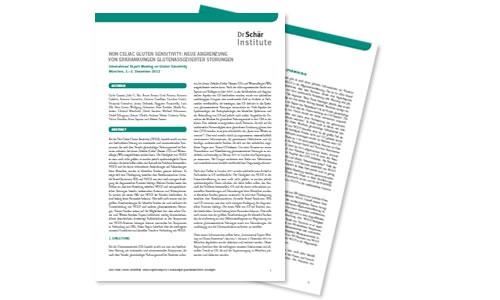
The new frontier of gluten-related disorders: Full Report from the 2nd Expert Meeting on Non-coeliac Gluten Sensitivity
This report, published in the journal ‘Nutrients’ evaluates and discusses major advances and current trends in non-coeliac gluten-sensitivity (NCGS) as well as areas where further research is required. It is the result of The Second Expert Meeting on Non-Coeliac Gluten Sensitivity which brought a panel of international experts together to discuss the evidence on gluten sensitivity, held in December 2012.
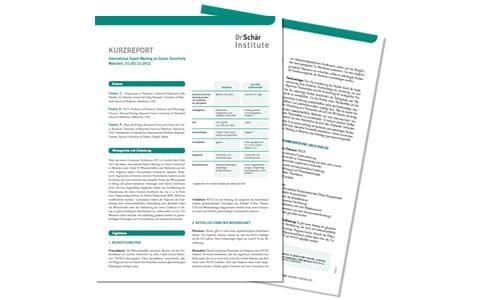
Short Report: Expert Meeting on Non-Coeliac Gluten Sensitivity 2012
Non-Coeliac Gluten Sensitivity. What precisely is this and what diagnosis criteria can be defined? Around 30 international experts discussed these questions in December 2012. A short report of the meeting is presented here.

Non-Coeliac Gluten Sensitivity Booklet
This resource provides healthcare professionals with a detailed overvi...

The new frontier of gluten-related disorders: Full Report from the 2nd Expert Meeting on Non-coeliac Gluten Sensitivity
This report, published in the journal ‘Nutrients’ evaluates and discus...

Short Report: Expert Meeting on Non-Coeliac Gluten Sensitivity 2012
Non-Coeliac Gluten Sensitivity. What precisely is this and what diagno...
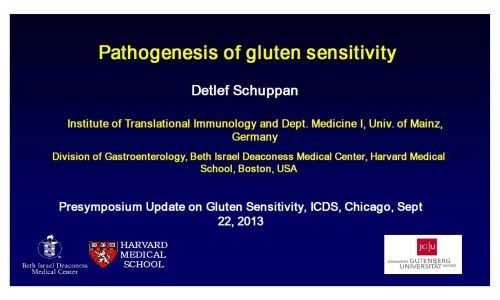
Pathogenesis of gluten sensitivity (2013)
Detlef Schuppan, Prof. Dr. Dr.
Institute of Translational Immunology and Dept. Medicine I
Univ. of Mainz, Germany
15. International Celiac Disease Symposium in Chicago between the 22nd and 25th September 2013
Institute of Translational Immunology and Dept. Medicine I
Univ. of Mainz, Germany
15. International Celiac Disease Symposium in Chicago between the 22nd and 25th September 2013
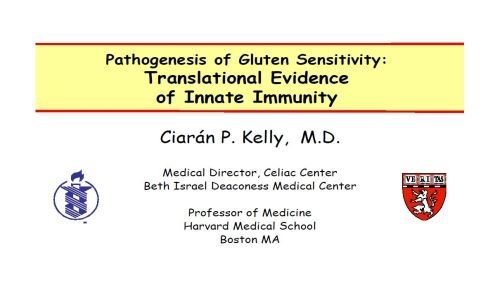
Pathogenesis of Gluten Sensitivity: Translational Evidence of Innate Immunity (2013)
Ciarán P. Kelly, M.D.
Medical Director, Celiac Center
Beth Israel Deaconess Medical Center
Professor of Medicine
Harvard Medical School
Boston MA, USA
15. International Celiac Disease Symposium in Chicago between the 22nd and 25th September 2013
Medical Director, Celiac Center
Beth Israel Deaconess Medical Center
Professor of Medicine
Harvard Medical School
Boston MA, USA
15. International Celiac Disease Symposium in Chicago between the 22nd and 25th September 2013

Pathogenesis of gluten sensitivity (2013)
Detlef Schuppan, Prof. Dr. Dr.
Institute of Translational Immunology ...

Pathogenesis of Gluten Sensitivity: Translational Evidence of Innate Immunity (2013)
Ciarán P. Kelly, M.D.
Medical Director, Celiac Center
Beth Israel De...
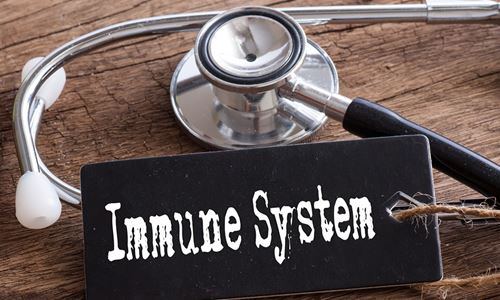
Intestinal cell damage and systemic immune activation in individuals reporting sensitivity to wheat in the absence of coeliac disease
The results of this study demonstrate the presence of objective markers of systemic immune activation and correlating serum markers of gut epithelial cell damage in individuals who report sensitivity to wheat, rye and barley in the absence of CD.
>> Read more... <<<
>> Read more... <<<

Intestinal cell damage and systemic immune activation in individuals reporting sensitivity to wheat in the absence of coeliac disease
The results of this study demonstrate the presence of objective marker...
Is there genetic involvement in NCGS?
Reiner Ullrich, MD
Universitätsmedizin Berlin
Campus Benjamin Franklin,
Medizinische Klinik für Gastroenterologie
12203 Berlin, Germany
At the Expert Meeting 2014 in Salerno, Italy
Universitätsmedizin Berlin
Campus Benjamin Franklin,
Medizinische Klinik für Gastroenterologie
12203 Berlin, Germany
At the Expert Meeting 2014 in Salerno, Italy
Does HLA play a role in all gluten-related disorders?
Reiner Ullrich, MD
Universitätsmedizin Berlin
Campus Benjamin Franklin,
Medizinische Klinik für Gastroenterologie
12203 Berlin, Germany
At the Expert Meeting 2014 in Salerno, Italy
Universitätsmedizin Berlin
Campus Benjamin Franklin,
Medizinische Klinik für Gastroenterologie
12203 Berlin, Germany
At the Expert Meeting 2014 in Salerno, Italy
Gluten Sensitivity: Scientific Research Update
International Expert Meeting on Gluten Sensitivity 2012 in Munich, Germany
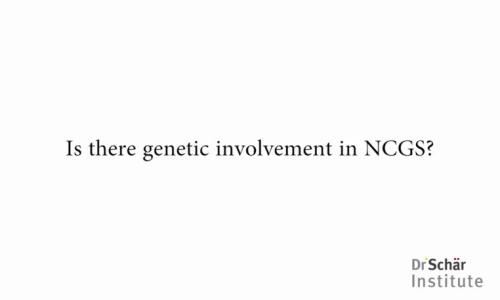
Is there genetic involvement in NCGS?
Reiner Ullrich, MD
Universitätsmedizin Berlin
Campus Benjamin Frankl...
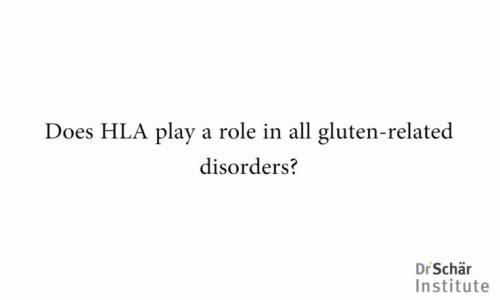
Does HLA play a role in all gluten-related disorders?
Reiner Ullrich, MD
Universitätsmedizin Berlin
Campus Benjamin Frankl...
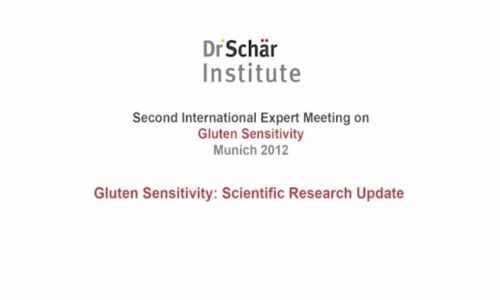
Gluten Sensitivity: Scientific Research Update
International Expert Meeting on Gluten Sensitivity 2012 in Munich, Ger...
www.drschaer-institute.com
